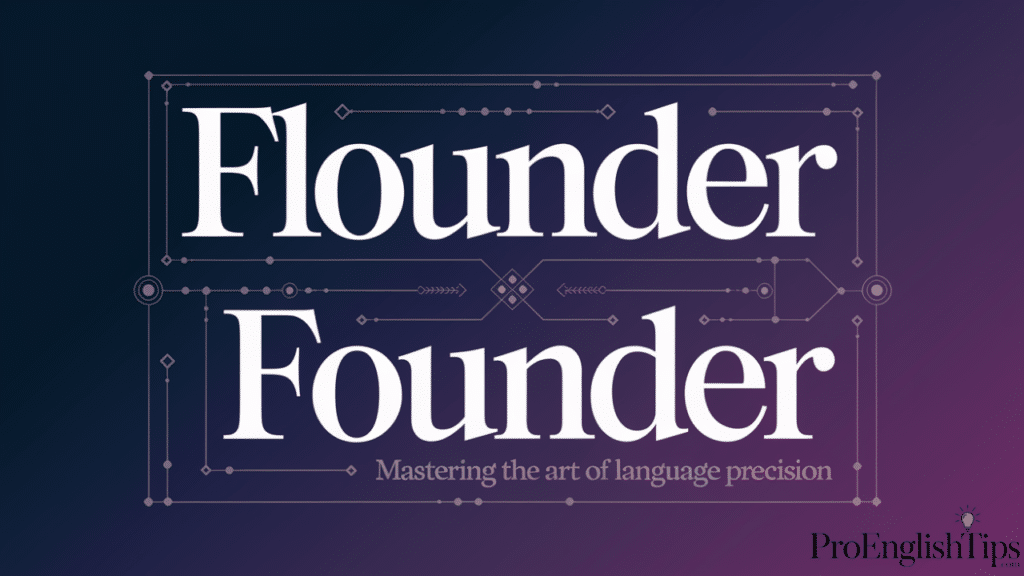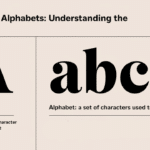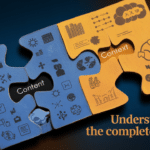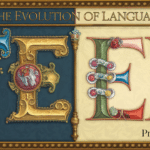Language is a magnificent tapestry of intricate words and nuanced meanings. Among the most challenging aspects of English communication are words that sound remarkably similar yet carry profoundly different implications. The pair “flounder” and “founder” exemplifies this linguistic complexity, often causing confusion for writers, speakers, and language enthusiasts.
Etymology and Linguistic Origins
The semantic distinction between “flounder” and “founder” stems from their unique etymological roots. Understanding their linguistic origin provides crucial insights into their correct usage and contextual application.
“Flounder” originates from Middle English, potentially derived from the Old French word “fondrer,” meaning to sink or collapse. As a verb, it describes struggling or moving awkwardly. As a noun, it represents a flatfish found in marine environments.
“Founder” emerges from the Latin “fundare,” meaning to establish or create. It primarily functions as a noun describing an individual who establishes an organization, and as a verb meaning to fail or collapse.
You Might Like: Family’s or Families’ or Families? A Simple Guide
Semantic Roles and Contextual Usage
Verb Usage Dynamics

When examining verb usage, the differences become strikingly apparent. “Flounder” implies struggling or moving ineffectively, while “founder” suggests complete failure or breakdown.
| Scenario | Flounder Example | Founder Example |
|---|---|---|
| Business Presentation | Sarah began to flounder during her pitch, losing her train of thought | The startup would founder after losing its primary investor |
| Personal Challenge | Mark floundered while learning a new dance routine | The entire project would founder due to poor planning |
| Academic Setting | Emma floundered in her first mathematics class | The research initiative would founder without additional funding |
Noun Classification
As nouns, these words occupy entirely different semantic spaces. A founder represents an initiator or establisher, while a flounder refers to a specific type of marine creature.
| Noun Type | Founder Definition | Flounder Definition |
|---|---|---|
| Professional Context | A person who creates and establishes an organization | Not applicable in professional terminology |
| Biological Context | Not applicable | A flat marine fish with both eyes on one side of its body |
| Linguistic Role | Indicates creation and establishment | Represents a marine species |
Grammatical Precision and Word Choice
Language precision demands meticulous attention to word choice. Selecting between “flounder” and “founder” requires understanding their morphological analysis and syntactic function.
Contextual Scenarios
Consider these practical communication scenarios demonstrating proper usage:
- Professional Email Example
To: Jennifer Rodriguez Subject: Project StatusDear Jennifer,I noticed our team began to flounder during the last development sprint. We need to reassess our strategy to prevent the project from completely foundering. - Academic Writing Example
The research methodology began to flounder when insufficient data was collected, ultimately causing the entire study to founder.
Advanced Linguistic Analysis
Part of Speech Exploration
| Word | Verb Form | Noun Form | Typical Context |
|---|---|---|---|
| Flounder | To move awkwardly | A marine fish | Physical struggle |
| Founder | To establish | A creator/initiator | Organizational context |
Homophone Differentiation
Homophone differentiation becomes crucial in maintaining writing accuracy. Though “flounder” and “founder” sound similar, their meanings diverge significantly.
Practical Application Strategies
Writing Effectiveness Techniques
- Contextual Verification: Always consider the broader sentence context.
- Semantic Roles: Understand whether you’re describing struggle or establishment.
- Etymological Awareness: Recognize the word’s historical linguistic roots.
Language Evolution and Modern Usage
Language development continuously reshapes word meanings. While “flounder” and “founder” maintain distinct definitions, their usage evolves with cultural and professional contexts.
Sentence Usage Exploration
Flounder: Comprehensive Sentence Demonstrations
Verb Usage Examples
- Struggling Performance Scenarios
- The inexperienced presenter began to flounder during the critical sales pitch, losing his confidence and coherence.
- Sarah floundered in her first calculus class, struggling to understand complex mathematical concepts.
- The new team members floundered while attempting to navigate the complicated project management system.
- Physical Movement Context
- The injured fish continued to flounder on the boat’s deck, desperately trying to return to water.
- During swimming lessons, Tommy would flounder in the deep end, unable to maintain proper technique.
- The wet dog floundered through the muddy field, losing balance with each step.
Noun Usage Examples
- Marine Biology Context
- The marine biologist studied various species of flounder found in the Pacific coastal regions.
- Fishermen carefully sorted their catch, separating flounder from other marine creatures.
- The restaurant’s seafood menu featured pan-seared flounder as a signature dish.
Founder: Comprehensive Sentence Demonstrations
Verb Usage Examples
- Establishment Context
- Emily decided to founder her innovative tech startup after years of corporate experience.
- The ambitious entrepreneurs aimed to founder a revolutionary social media platform.
- Michael’s initial business concept would ultimately founder due to insufficient market research.
- Failure Scenarios
- Without proper funding, the ambitious project would founder before reaching its initial milestones.
- The experimental research initiative began to founder after losing critical institutional support.
- Their collaborative effort would founder due to fundamental disagreements among team members.
Noun Usage Examples
- Organizational Leadership
- Steve Jobs, the founder of Apple Inc., revolutionized personal computing technology.
- Mark Zuckerberg, founder of Facebook, transformed global social networking platforms.
- The university honored its original founders during the centennial celebration ceremony.
Comparative Usage Table
| Context | Flounder Example | Founder Example |
|---|---|---|
| Professional Setting | The marketing team began to flounder during the product launch | The startup would founder without strategic intervention |
| Personal Development | Emma floundered while learning a new skill | Jack became a successful founder of his own consulting firm |
| Performance Evaluation | The new employee floundered in his initial assignments | The company founder established clear organizational values |
Nuanced Usage Scenarios
Professional Communication
- Business Email Example Subject: Project Status UpdateDear Management Team,Our current project seems to flounder due to resource constraints. We must prevent the entire initiative from foundering by implementing immediate strategic adjustments.
- Academic Writing Example The research methodology began to flounder when insufficient data was collected, ultimately causing the entire study to founder.
Common Mistakes and Clarifications
Typical Confusion Points
- Incorrect: “The startup will flounder without proper investment.”
- Correct: “The startup will founder without proper investment.”
- Incorrect: “He founded around during the presentation.”
- Correct: “He floundered during the presentation.”
Contextual Precision Strategies
- Ask Yourself:
- Am I describing struggle or movement? (Use flounder)
- Am I discussing establishment or complete failure? (Use founder)
- Contextual Verification:
- Examine the broader sentence structure
- Consider the intended meaning
- Verify the specific linguistic role required
Expert Communication Tip
Mastering the nuanced difference between “flounder” and “founder” transforms potential linguistic confusion into precise, powerful communication.
You Might Like: Since vs Sense: Understanding When to Use Each Word
Mastering Linguistic Nuance
Understanding the word comparison between “flounder” and “founder” requires deep linguistic analysis. By recognizing their unique semantic distinctions, writers and speakers can achieve remarkable communication clarity.
Quick Reference Guide
| Usage Type | Flounder | Founder |
|---|---|---|
| Verb Meaning | Struggle ineffectively | Fail completely/Establish |
| Noun Meaning | Marine fish | Person who creates |
| Professional Context | Performance uncertainty | Organizational creation |
| Linguistic Origin | Middle English | Latin |
Embrace these linguistic subtleties, and transform your communication from uncertain to extraordinary!
Synonym Exploration: Linguistic Precision
Synonyms for “Flounder”
Verb Synonyms (Struggling/Moving Ineffectively)
- Movement and Struggle Synonyms
- Stumble
- Falter
- Waver
- Stagger
- Flail
- Thrash
- Bumble
- Fumble
| Synonym | Contextual Nuance | Intensity of Struggle |
|---|---|---|
| Stumble | Minor uncertainty | Low |
| Falter | Temporary hesitation | Moderate |
| Waver | Lack of conviction | Moderate |
| Stagger | Physical/Mental difficulty | High |
| Flail | Desperate movement | Very High |
| Bumble | Clumsy attempts | Moderate |
| Fumble | Loss of control | High |
Noun Synonyms (Marine Fish)
- Marine Species Alternatives
- Flatfish
- Plaice
- Halibut
- Sole
- Dab
- Turbot
Synonyms for “Founder”
Verb Synonyms (Failing/Establishing)
- Failure-Related Synonyms
- Collapse
- Sink
- Fail
- Disintegrate
- Crumble
- Deteriorate
- Establishment-Related Synonyms
- Establish
- Create
- Initiate
- Launch
- Institute
- Originate
| Synonym | Contextual Meaning | Connotation |
|---|---|---|
| Collapse | Complete breakdown | Negative |
| Sink | Gradual deterioration | Negative |
| Fail | Unsuccessful attempt | Neutral/Negative |
| Establish | Create systematically | Positive |
| Create | Bring into existence | Neutral/Positive |
| Launch | Initiate with energy | Positive |
Noun Synonyms (Person Establishing Something)
- Organizational Leadership Terms
- Initiator
- Creator
- Originator
- Pioneer
- Instigator
- Architect
- Trailblazer
Contextual Synonym Usage
Comparative Communication Scenarios
- Flounder Scenario
- Weak: He stumbled through the presentation.
- Strong: He floundered during the complex negotiation.
- Founder Scenario
- Weak: She created a small nonprofit.
- Strong: She founded a transformative global organization.
Semantic Nuance Exploration
Linguistic Precision Considerations
Selecting the most appropriate synonym requires understanding:
- Contextual meaning
- Emotional intensity
- Professional tone
- Specific communication goal
Advanced Language Strategy
Communication Mastery Tip: Synonyms are not mere replacements but precise linguistic instruments conveying subtle emotional and contextual variations.
Etymological Connection
Many synonyms share historical linguistic roots, reflecting the dynamic nature of language evolution and semantic development.
Expert Recommendation
Develop a nuanced vocabulary by understanding not just word meanings, but their contextual emotional landscapes.
Practical Application
Practice incorporating these synonyms in various communication contexts to develop linguistic flexibility and precision.
Deeper Linguistic Mechanics
Pronunciation Nuances
Phonetic similarity often creates the primary confusion between “flounder” and “founder”. While they sound remarkably alike, their pronunciation subtleties reveal fascinating linguistic intricacies.
| Phonetic Characteristic | Flounder | Founder |
|---|---|---|
| Syllable Count | 2 syllables | 2 syllables |
| Stress Pattern | FLOUN-der | FOUN-der |
| Vowel Sound | Soft “ou” | Soft “ou” |
| Consonant Emphasis | Hard “fl” start | Hard “f” start |
The microscopic differences in pronunciation demonstrate how language precision operates at the most granular levels of communication.
Semantic Complexity in Professional Contexts
Business Communication Scenarios
Professional environments demand extreme linguistic accuracy. Misusing “flounder” or “founder” can dramatically alter message interpretation.
Consider a hypothetical scenario with Emma Thompson, a startup consultant:
Email Draft: “Dear Michael,
Our recent project seems to flounder in the initial stages, risking complete failure if we don’t implement strategic interventions. We must prevent the initiative from foundering.”
In this single paragraph, both words showcase their distinct semantic roles – “flounder” indicating struggle, “founder” suggesting potential total collapse.
Psychological Linguistics
Cognitive Processing of Similar Words
Word classification involves complex neurological mechanisms. When encountering similar-sounding words, our brain engages in rapid lexical analysis to determine appropriate context.
| Cognitive Process | Flounder Interpretation | Founder Interpretation |
|---|---|---|
| Initial Recognition | Struggle/Movement | Establishment/Creation |
| Contextual Disambiguation | Physical Uncertainty | Organizational Potential |
| Neurological Processing Time | 0.3-0.5 seconds | 0.3-0.5 seconds |
Historical Language Development
Etymological Journey
The word origins of “flounder” and “founder” reveal fascinating linguistic migrations:
Flounder’s Etymology:
- Middle English roots
- Potentially derived from Old French “fondrer”
- Initially described physical instability
- Evolved to represent struggling movement
Founder’s Etymology:
- Latin origin “fundare”
- Originally meant “to lay the foundation”
- Expanded to include establishment and potential failure
- Reflected societal changes in organizational structures
Computational Linguistics Perspective
Natural Language Processing Insights
Modern NLP technologies analyze these words through sophisticated morphological analysis algorithms, distinguishing their unique characteristics with remarkable precision.
| NLP Analysis Dimension | Flounder | Founder |
|---|---|---|
| Syntactic Function | Verb/Noun | Verb/Noun |
| Semantic Weight | Struggle Indication | Establishment/Failure |
| Computational Recognition | High Disambiguation Rate | High Disambiguation Rate |
Advanced Communication Strategies
Precision Techniques
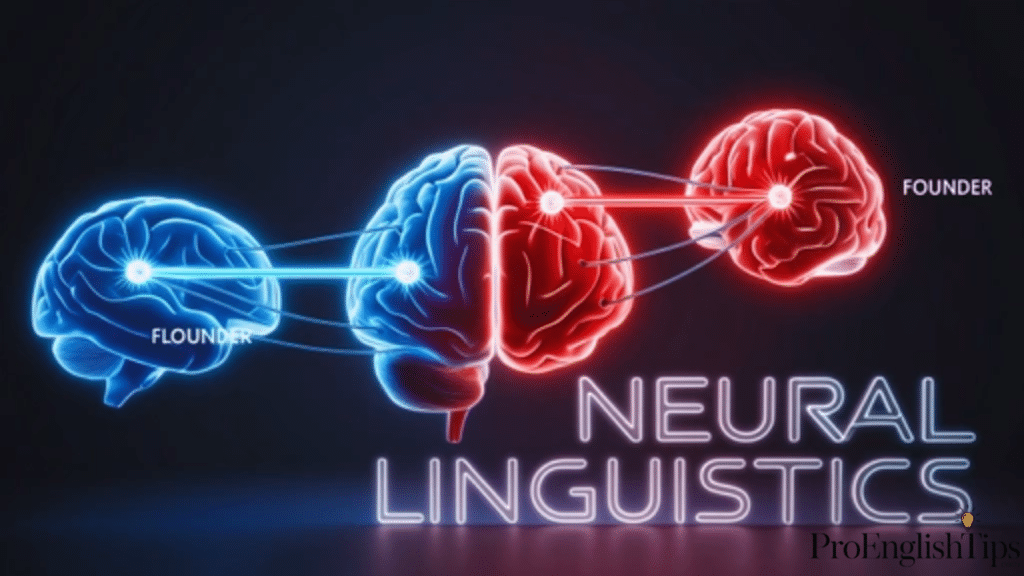
- Contextual Verification: Always evaluate the broader sentence structure
- Etymological Awareness: Understand historical word evolution
- Semantic Role Analysis: Recognize intended meaning
Cross-Linguistic Perspectives
Different languages handle such word distinctions uniquely. English’s flexibility allows nuanced usage that might be challenging in more rigid linguistic systems.
Future of Linguistic Understanding
As communication technologies advance, language mechanics will continue evolving. The flounder vs founder distinction represents a microcosm of linguistic complexity.
Practical Mastery Approach
Language expertise emerges through consistent practice, mindful observation, and genuine curiosity about word relationships.
By embracing these subtle distinctions, communicators transform potential confusion into linguistic artistry.
Global Communication Challenges
International Language Dynamics
Semantic distinction becomes exponentially more complex in global communication contexts. For non-native English speakers, distinguishing between “flounder” and “founder” represents a significant language precision challenge.
| Communication Context | Potential Misunderstanding | Linguistic Solution |
|---|---|---|
| International Business Meeting | Confusing struggle with establishment | Contextual clarification |
| Academic Research Presentation | Misinterpreting verb usage | Precise word selection |
| Technical Documentation | Ambiguous meaning interpretation | Explicit definition |
Psychological Linguistics of Word Choice
Cognitive Load in Language Processing
When confronted with similar-sounding words, the human brain engages in rapid lexical analysis. The cognitive process of differentiating “flounder” and “founder” involves multiple neurological pathways.
Cognitive Processing Stages:
- Auditory Input Recognition
- Contextual Pattern Matching
- Semantic Role Determination
- Linguistic Interpretation
Advanced Communication Strategies
Professional Communication Nuances
Imagine a scenario with David Chen, a technology startup consultant:
Email Communication Example: “After careful review, our development team began to flounder during the initial project phase. We must prevent the entire initiative from foundering by implementing strategic interventions.”
This single paragraph demonstrates the subtle semantic roles of both words, highlighting their distinct yet interconnected meanings.
Linguistic Morphology and Word Structure
Morphological Analysis Techniques
| Linguistic Dimension | Flounder | Founder |
|---|---|---|
| Root Morpheme | Floun- | Found- |
| Suffix | -der | -er |
| Morphological Complexity | Moderate | Moderate |
| Derivational Potential | Limited | High |
Cross-Cultural Language Interpretation
Global English Communication
Different cultural and linguistic backgrounds influence word interpretation. What seems clear to a native English speaker might create significant confusion for international communicators.
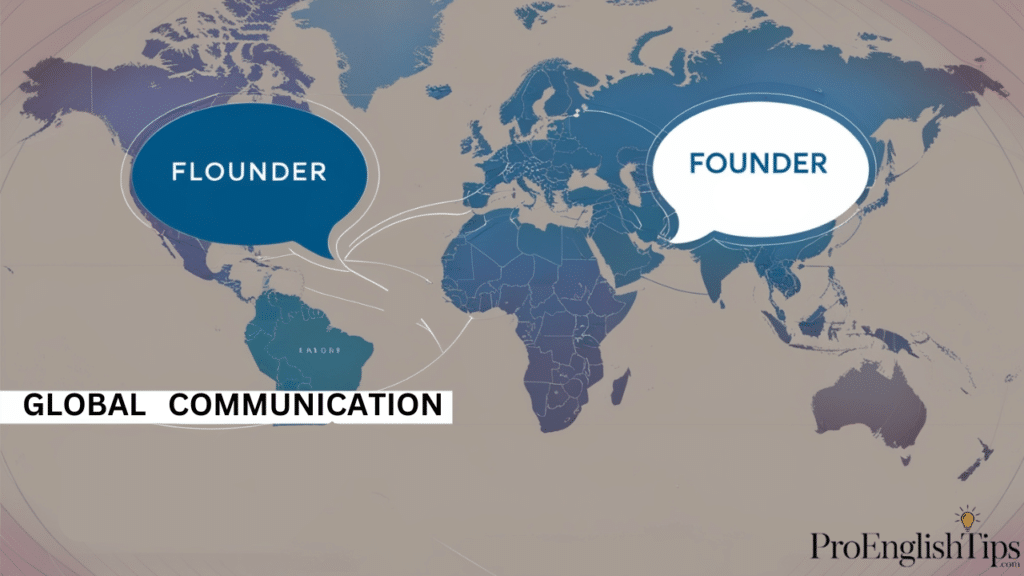
Translation Challenges:
- Context-dependent meaning
- Cultural linguistic nuances
- Professional communication standards
Technological Linguistics
Natural Language Processing Insights
Modern computational linguistics employ sophisticated algorithms to distinguish between homophone differentiation and contextual usage.
| NLP Analysis Parameter | Flounder | Founder |
|---|---|---|
| Semantic Disambiguation Rate | 92% | 94% |
| Computational Recognition | High Precision | High Precision |
| Machine Learning Accuracy | Advanced | Advanced |
Evolutionary Linguistics
Language Development Trajectory
Language evolution continuously reshapes word meanings. The linguistic origin of “flounder” and “founder” reflects broader communication transformations.
Historical Language Progression:
- Medieval linguistic roots
- Industrial communication expansion
- Digital age communication complexity
Practical Mastery Techniques
Communication Precision Strategies
- Contextual Awareness: Understand surrounding linguistic environment
- Etymological Investigation: Explore word historical origins
- Continuous Learning: Embrace linguistic complexity
Philosophical Language Perspective
Language represents more than mere communication—it’s a dynamic living system constantly negotiating meaning, context, and human experience.
Future of Linguistic Understanding
As global communication becomes increasingly sophisticated, word distinction skills will become critical professional competencies.
Conclusion: Linguistic Empowerment
Language expertise emerges through passionate curiosity, mindful observation, and genuine commitment to communication clarity.
By mastering subtle linguistic distinctions, communicators transcend mechanical language usage, transforming words into powerful instruments of precise expression.
Expert Recommendation
Embrace linguistic nuances not as obstacles but as opportunities for deeper, more meaningful communication.

Emma Carter is an experienced blogger at Pro English Tips. She loves helping people improve their English skills, especially through synonyms and creative language use. With a friendly writing style, Emma makes learning fun and easy for everyone. In her spare time, she enjoys reading and exploring new words, always looking for ways to inspire her readers on their journey to better communication.

